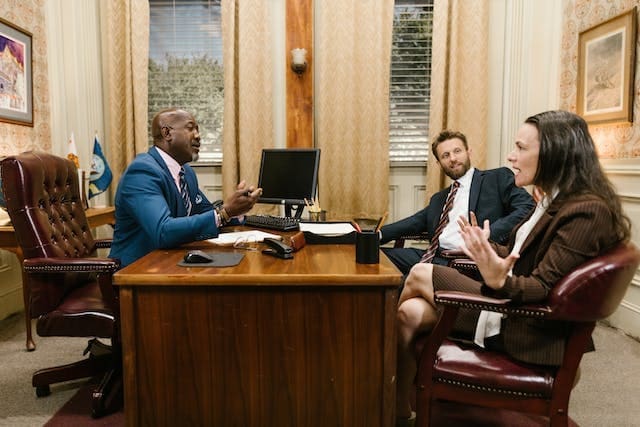Divorce, especially when it heads to the courtroom, is undeniably one of life’s most challenging chapters. The stakes are high, emotions run deep, and decisions can have a lasting impact. In the midst of the legal labyrinth, finding the right contested divorce attorney is not just a necessity; it’s your lifeline. In this guide, we’ll navigate the twists and turns of this crucial decision together, ensuring you find an advocate who not only understands the law but also resonates with the human side of your story.
Understanding the Contested Divorce Landscape
Before delving into the search for your legal ally, let’s briefly demystify the contested divorce landscape. A contested divorce occurs when spouses can’t agree on key issues, such as asset division, child custody, or alimony. It’s a legal tug-of-war where emotions often collide with legal intricacies. Understanding the role of contested divorce attorneys will help you to have a much better idea of what to expect when hiring one and also what to look for in a quality professional for your case.
Why Your Choice of Attorney Matters
Your attorney is not just a legal expert; they become your confidant, strategist, and voice in the courtroom. Think of them as your legal quarterback, guiding you through a challenging game. Here’s why your choice is pivotal:
- Legal Expertise: Your attorney should be well-versed in family law and, specifically, contested divorces. Look for someone with a track record of navigating complex legal battles successfully.
- Communication Skills: A good attorney communicates clearly, ensuring you understand the legal jargon. They should be approachable, responsive, and willing to answer your questions, no matter how trivial they may seem.
- Empathy and Understanding: Divorce is not just a legal process; it’s a deeply personal journey. Your attorney should empathize with your situation, understanding the emotional toll it takes. Compassion can go a long way in making the process more bearable.
- Strategic Thinking: Every case is unique. Your attorney should be a strategic thinker, able to adapt legal strategies to the specifics of your situation. A one-size-fits-all approach rarely yields the best results.
The Search Begins: Where to Look
1. Personal Recommendations
Start close to home. Friends, family, or colleagues who’ve been through a contested divorce may provide valuable insights. Personal recommendations often come with a human touch, helping you gauge not just the legal prowess but also the personal dynamics.
2. Online Directories and Reviews
The internet is a vast treasure trove of information. Check online directories and legal review platforms. Pay attention to reviews that speak to the attorney’s ability to connect with clients on a personal level.
3. Local Bar Associations
Your local bar association is a goldmine of verified legal practitioners. They can provide you with a list of attorneys specializing in contested divorces. It’s a reliable starting point to narrow down your options.
Narrowing Down Your Choices: Questions to Ask
As you compile a list of potential attorneys, it’s time to dive deeper. Here are essential questions to pose to ensure you find someone who aligns with both your legal and personal needs:
1. How do you approach contested divorce cases?
- Look for an attorney with a clear, personalized strategy rather than a generic approach.
2. What’s your communication style?
- Ensure your attorney’s communication style matches your preferences. If you prefer regular updates, make that clear from the start.
3. Can you provide references from past clients?
- A confident, experienced attorney should readily offer references. Reach out to past clients to get a firsthand account of their experience.
4. How do you handle the emotional aspects of divorce?
- A good attorney acknowledges the emotional toll of divorce and can navigate both legal and emotional landscapes effectively.
5. What are the potential costs involved?
- Transparency is key. Make sure you have a clear understanding of the financial aspects, including fees and potential additional costs.
The First Meeting: Trust Your Instincts
Once you’ve narrowed down your list, schedule initial consultations. Treat this as a two-way street. While the attorney assesses the merits of your case, you’re also evaluating whether they’re the right fit for you. Trust your instincts; if something feels off, it probably is.
Conclusion: Your Legal Companion
In the quest for the right contested divorce attorney, remember that it’s not just about finding a legal expert. It’s about discovering a compassionate, strategic partner who understands the intricate dance between law and humanity. Your attorney should be your legal companion, navigating the complexities with both expertise and empathy. So, take your time, ask the right questions, and trust your instincts. After all, in the journey of divorce, a reliable guide can make all the difference.
Featured Photo by RDNE Stock project: pexels.com




